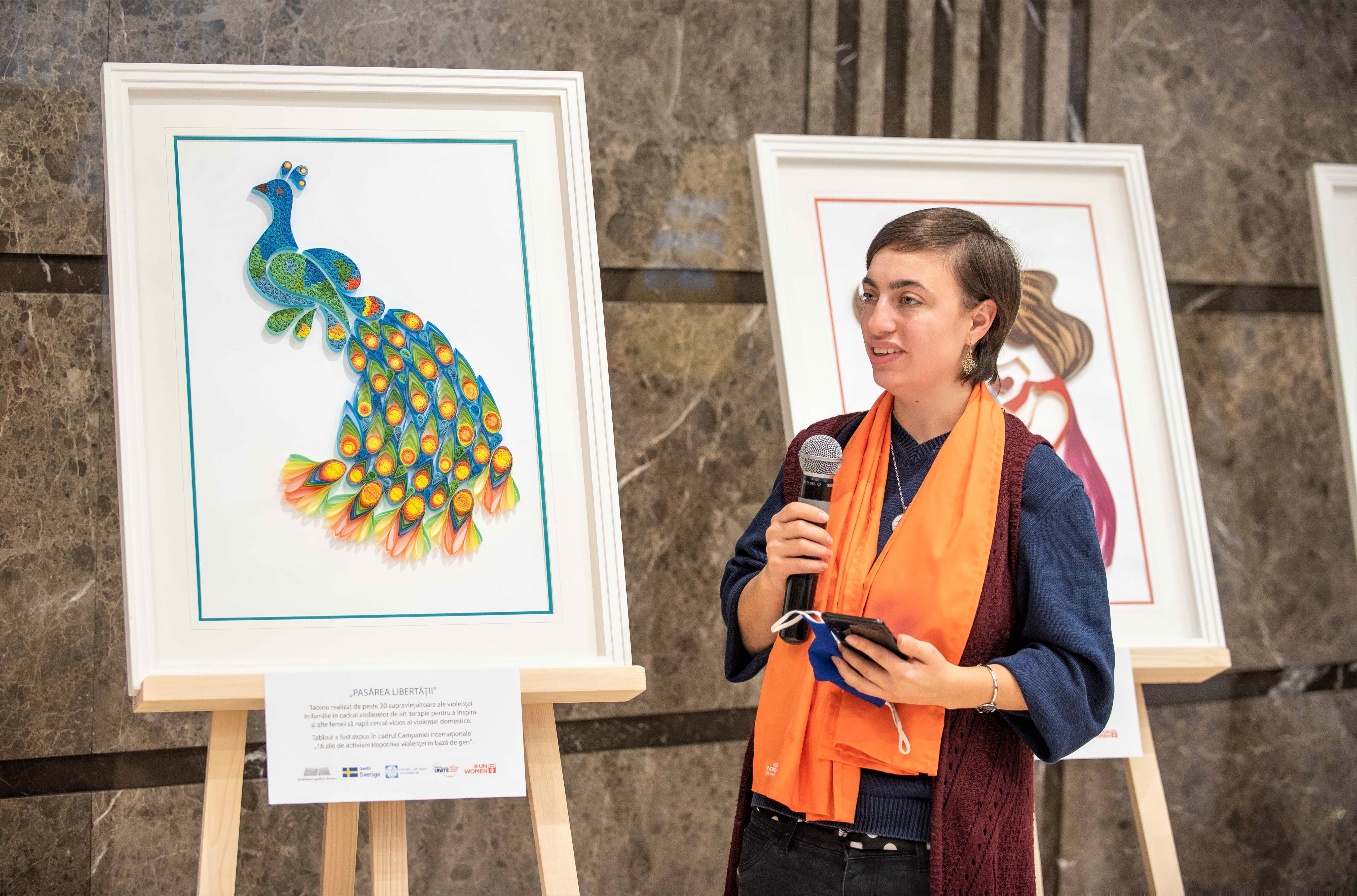
Ending violence against women and girls

In 2016, UN Women supported the government in developing its first-ever National Strategy on Preventing and Combating Violence Against Women and Violence in the Family 2018-2022. The Parliament also approved amendments to 12 laws, including law No. 45 on Preventing and Combating Domestic Violence, which aligned Moldovaʼs laws with international norms.
As a result of advocacy from CSOs, state institutions and development partners, including UN Women, the Republic of Moldova ratified the Council of Europeʼs Convention on Preventing and Combating Violence Against Women and Domestic Violence. Along with this progress, the government has also approved the intersectoral mechanism on ending violence against women and girls (VAWG), with UN Womenʼs support. This mechanism will ensure a more holistic and coordinated response to various forms of VAWG.
Over the years, UN Women has targeted women and girls through community based initiatives to inform them of their rights and available support services as well as men and boys to challenge patriarchal masculinity. UN Women is supporting the establishment of a specialised service for victims of sexual violence in Ungheni district, the first of its kind in Moldova.
Our future priorities will focus on:
- Providing technical assistance and policy advice to the government in order to implement the commitments arising out of the Council of Europeʼs Convention on Preventing and Combating Violence Against Women and Domestic Violence.
- Supporting the government in strengthening the prevention of VAWG by addressing its root causes.
- Supporting the expansion and strengthening of specialised services for survivors of VAWG.
- Targeting men and youth to prevent VAWG through initiatives that challenge patriarchal masculinities.
- Ensuring gender sensitive curricula and transformative capacity building programmes for teachers to increase their knowledge on preventing VAWG.
- Strengthening the capacity of feminist movements, activist groups and womenʼs rights organisations.
- Conducting awareness-raising campaigns on eliminating VAWG.